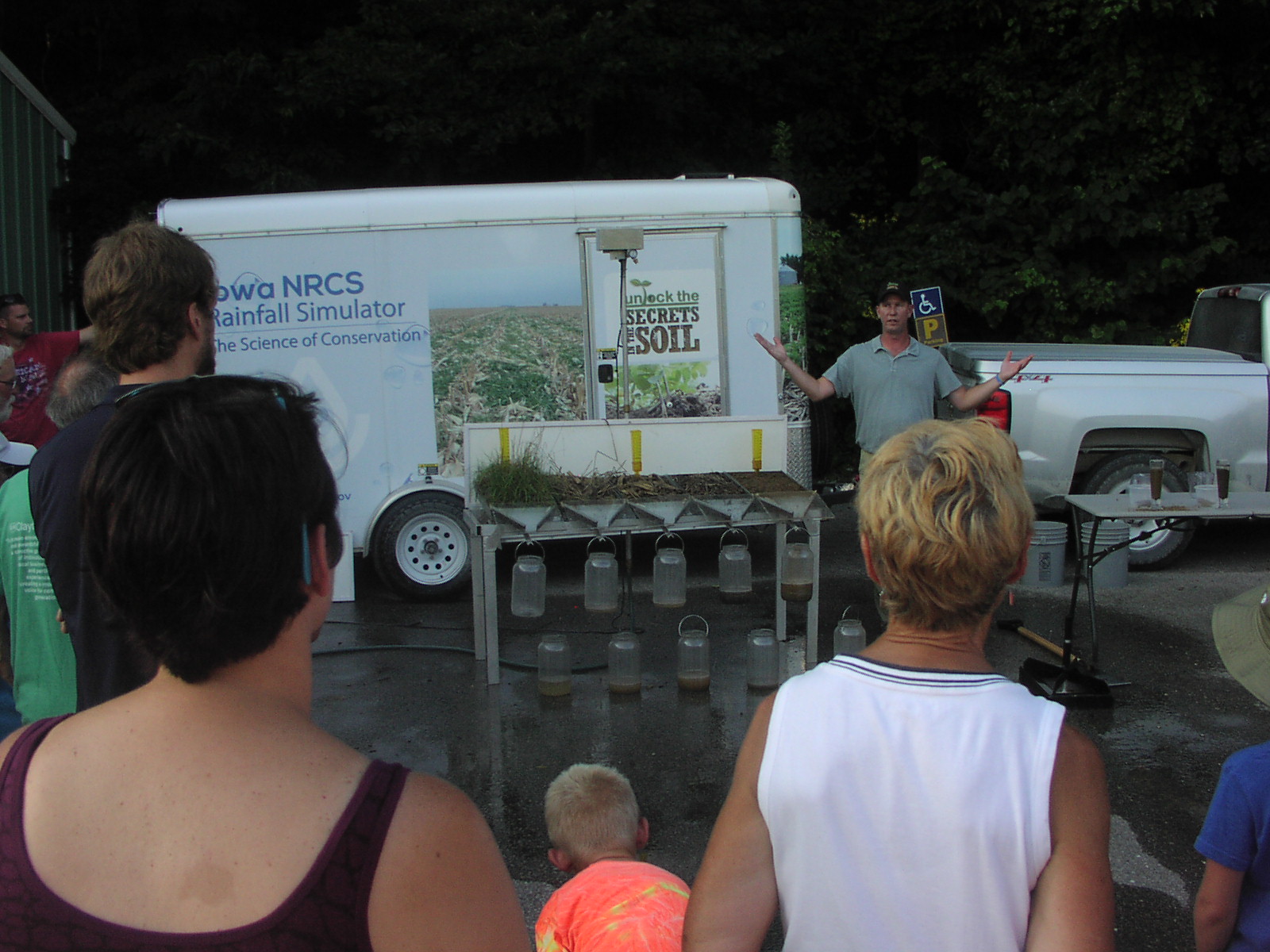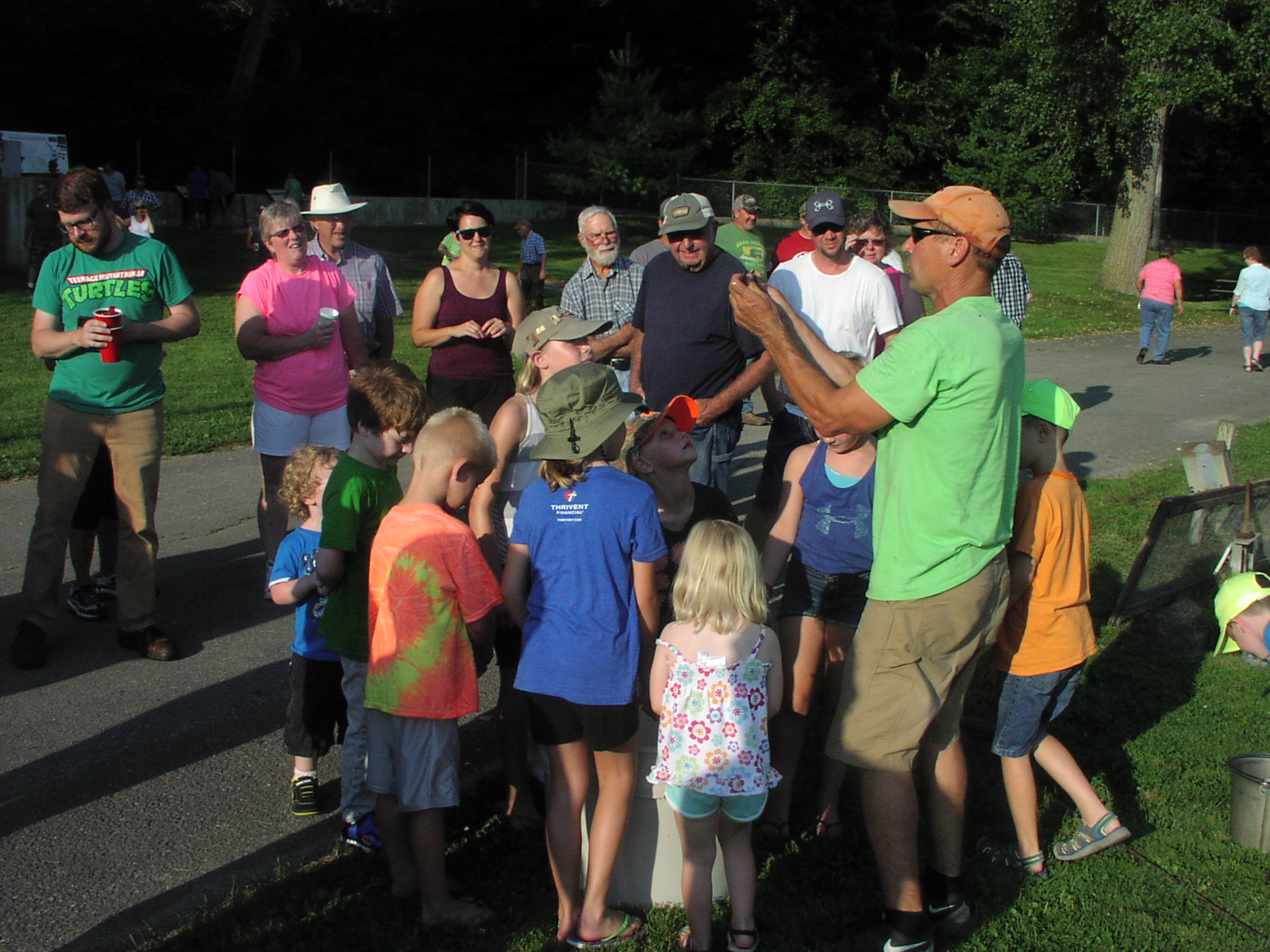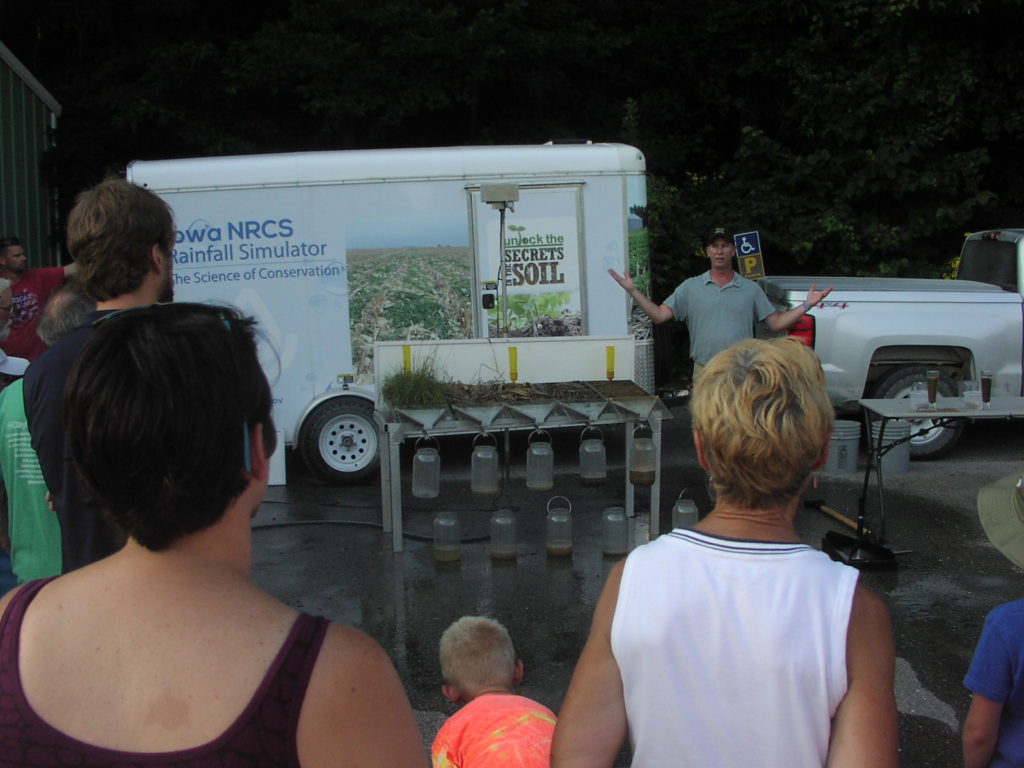
Story submitted by Eric Palas, Environmental Specialist, Iowa Department of Agriculture and Land Stewardship – Division of Soil Conservation and Water Quality
Elkader, IA. – On August 10th, fifty farmers from the Upper Roberts and Silver Creek Watersheds enjoyed an evening of family fun at the Big Spring Trout Hatchery along the Turkey River near Elkader. The Second Annual Landowner Appreciation Day allowed farmers and their families to follow the path of water that drains from their land to where it reemerges at Big Spring.
Big Spring was originally developed as a fishing club in the late 1930’s by Otto and Mary Bankes. In 1961, the state purchased the property. As its name implies, the water supply for Big Spring is fed by the largest cold water spring in Iowa. Flows usually range from 20,000 to 30,000 gallons per minute, but can exceed five times that amount during periods of heavy rainfall. Currently, more than 250,000 rainbow and brook trout are reared at Big Spring and stocked in northeast Iowa streams.
Hatchery operations are funded by the sale of fishing licenses and trout stamps. DNR Fisheries Biologist Gary Siegwarth provided a tour of the facility and emphasized the value of the unique recreational opportunities that are available in northeast Iowa.
“The price of a fishing license is comparable to the cost of a pizza,” Siegwarth commented while holding a pizza box. “While you might enjoy the pizza for a few minutes, you can enjoy fishing all year long with the license”.
Gary reviewed the process for raising and stocking trout and pulled fish from the rearing areas to give the kids that attended a close look at juvenile and brood trout. The kids fishing pond was busy all evening.

Drainage from over 66,000 acres of surrounding cropland contributes to the water flow of Big Spring. Sinkholes in the basin, including some identified within the Roberts and Silver Creek stream channels, have also been linked to the spring. Based on the unique geology of the region, the conservation practices that farmers utilize have a direct benefit on water quality. Siegwarth referred to the spring as the “ultimate barometer” of land treatment within the watershed. The conservation practices and habitat improvements completed by producers not only reduce erosion and keep the spring flows clean, but also reduce flooding and benefit wildlife and pollinators.
Neil Sass, Area Agronomist with the Natural Resources Conservation Service, illustrated the benefits of conservation practices with a rainfall simulator demonstration. The simulator measured runoff and infiltration from five different cropping systems following a two-inch rain. As shown by the simulator, increased tillage dramatically raised the amount of soil and nutrients that left a field compared to the systems that reduced disturbance and maximized ground cover, like no-till. Nearly all of the rainfall soaked into the soil for the no-till systems, which is especially important in years of excessive rainfall or drought.
The quality of the water at Big Spring reflects how well farmers are protecting their land. In order to accelerate these efforts, special cost share incentives are available to farmers within the Upper Roberts and Silver Creek Watersheds. The Clayton Soil & Water Conservation District secured an Iowa Water Quality Initiative Demonstration Project grant in 2013. The grant supports efforts to promote cover crops, no-till and other sustainable systems within the watersheds. These practices keep soil and nutrients in place on farm fields and prevent them from becoming a source of pollution. Watershed farmers seeded over 2,300 acres of cover crops in 2015.
Local bee keeper Bob Fassbinder spoke to the group about how our farming practices can impact our environment. He maintains hives on numerous locations in the Turkey River basin. Bob views bees as a ‘barometer’ of our environment. Bees thrive in diverse landscapes, but can be impacted by land use changes and crop production practices. The increased use of pollinator species on land enrolled in the Conservation Reserve Program has been a positive trend. In order to support healthy populations of pollinators, Fassbinder believes that at least 10% of our land cover needs to include a diverse plant and woodland habitat.
The Landowner Appreciation Day concluded with a meal that featured local foods provided by the Central Community School garden and Turkey River Farm. The event was jointly sponsored by the Clayton County Conservation Awareness Network, Clayton County Pheasants Forever, the Iowa Department of Natural Resources, and the Clayton Soil & Water Conservation District.
Have a water-related story you want to share about your community? Submit it to us at hbates@iastate.edu.
